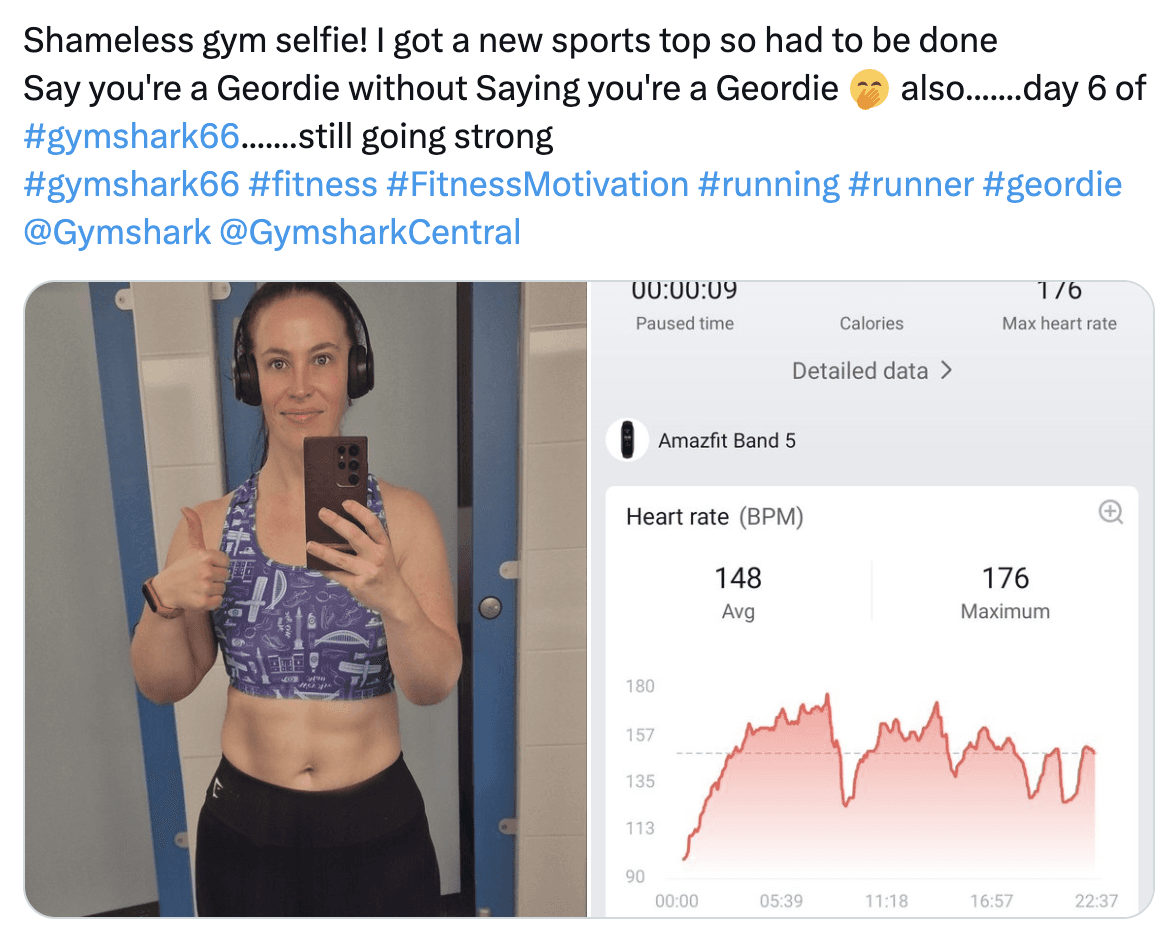Where are the Brand Extensions Fit For the New Fandom Era?

TLDR: Zoe Scaman redefined our understanding of fandom, but the brand licensing world hasn’t caught up. Let's look at the state of brand 'fandom'.""
The brand licensing industry has latched onto the word ‘fandom’, but have we really understood what it means?
Zoe Scaman has, perhaps more than anyone else, shaped thinking around fandom as both a cultural force and a commercial opportunity. In a much-discussed talk in 2020, she defined ‘fandom’ as “a subculture composed of fans characterised by a feeling of empathy and camaraderie with others who share a common interest.” She introduced her ‘New Fandom Formula’ in 2021, and argued that there are three key ingredients for fandom now:
Community — a “true peer-to-peer network” that feels intimate and authentic.
Autonomy — “creative freedom and active encouragement” for fans to share ideas.
Equity — opportunities for fans to be financially rewarded for their involvement.
We’re proud members of the Zoe Scaman (ahem) fan club here at Skew. She makes a compelling case for a new, more radical conception of fandom. But let’s be real; the New Fandom Formula flies in the face of conventional brand extension and licensing wisdom. The licensing model is built on central, top-down control of IP.
How licensing normally works:
The IP owner grants a licensee rights to use the brand, character, or trademark on new products.
The licensee, now holding the rights to use the IP, either manufactures the products themselves or outsources production to a third party.
Once the products are manufactured, they’re distributed to retailers.
Fans of the IP buy the licensed product.
Note the absence of fans in steps 1-3.
And yet the trade press is buzzing with commentary about how brands can tap into fandom. ‘Fandom’ is mentioned regularly in articles on licensing, but references to Scaman’s work are conspicuously absent, and there’s not much discussion of genuine community, autonomy, and equity.
The hype is real
Even Amazon Ads is banging the fandom drum (hereby known as the fandrum). You know, the division of Amazon that controls the ads you see at the top of the results when you search for a good value air fryer or a bulk order of AA batteries. Why are they hyping fandom? Well, they also control the video ads you see on Amazon Prime; they offer advertisers a way to target fans of specific franchises. Amazon also acquired the interactive streaming service Twitch in 2014 for nearly $1 billion. And Twitch is also an ad platform. For Twitch and Amazon, fandom means highly-engaged, monetisable eyeballs.
Here’s the thing. There’s a difference between knowing and engaging your audience, and fully embracing the New Fandom Formula. Acknowledging the power of fandom is great, but how many brands are ready to really experiment with more radical ways to involve their fans?
Below, we’ll take a closer look at what some prominent brands are doing in the fandom space, through those three New Fandom Formula lenses — community, autonomy, and equity. Whilst none of the companies discussed have claimed to be applying the formula, it’s an interesting way to explore what deeper opportunities they might be missing.
Community: Do brand communities need a little more chaos?
We’re seeing both young, socially-native brands and established IP giants playing with community in a number of ways. But are any of them as intimate and authentic as they could be, or are brands missing out on even more vibrant fandom by failing to imagine how their communities might thrive without centralised control?
Let’s take a closer look at two rather different brands — Gymshark and Barbie — to get a feel for how brand communities often worked in 2024:
Gymshark
Gymshark is a fitness clothing brand founded by Ben Francis. From humble beginnings running the business from his parents’ garage, the company now has over 18 million social media followers and made £485m in sales in 2022. They claim they “exist to unite the conditioning community.”
How do they involve their community?
They run social-media-friendly challenges like Gymshark66. They have an ‘Insiders’ community, where customers can provide feedback on marketing campaigns and new products. They run real-world events and pop-up stores. They give a platform to selected influencers and repost user-generated content. #Gymshark and related hashtags have well over 15m posts on Instagram.

What could they do differently?
Clearly there’s a large, engaged group of Gymshark fans around the world (in the brand’s language, their “family”). Presumably these people would miss the community the brand has cultivated if it suddenly disappeared.
There does seem to be a level of authenticity. But is it truly peer-to-peer? Gymshark picks which influencers become brand ambassadors. Gymshark sets the challenges and plans the events for its community. Gymshark is categorically in control. In a true P2P model, these activities would emerge organically, with fans driving the initiatives based on their interests and connections. Perhaps we’ll see Gymshark embracing a more bottom-up, fan-led approach to community in the future, as the power of wilder, more loosely-managed forms of fandom begins to sink in for brands.
Barbie
Mattel launched a Signature Digital Membership for Barbie fans in 2021. For £10/year, they promise these perks:
Exclusive access to members-only dolls and content
Early access for select public sales
Behind-the-scenes access
Interaction with doll designers
Voting on new doll designs
Giving Barbie fans the opportunity to vote on new designs is an interesting way to give them some input into new products, but this seems to be within parameters carefully controlled by the brand. Like Gymshark, this initiative falls short of the true “peer-to-peer” community Scaman describes.
Fans in a discussion on the r/Barbie Reddit community also mention they enjoy the members-only forum, where they can interact with other fans. Applying Scaman’s community lens, it’s easy to imagine how this members’ forum could take a leaf out of the LEGO Ideas playbook and become more than just a space for discussion; it could be a place for fans to hatch ideas for new dolls together, get them manufactured, and trade them. Perhaps Mattel is also exploring how they might help fans organise their own events. Could the future be a place where every fan has their own, uniquely weird Barbie made just for them?
Autonomy: Setting IP free
Remember the autonomy principle from the New Fandom Formula? This is about brands giving fans “creative freedom and active encouragement” to share ideas and remix their IP. Let’s assess the new partnership between Disney and Epic Games through this lens…
Disney has recently invested $1.5b in Epic Games (creators of Fortnite). Together, they’re building a new “games and entertainment universe” that extends the existing Fortnite world. As reported on Disney’s blog:
“In addition to being a world-class games experience and interoperating with Fortnite, the new persistent universe will offer a multitude of opportunities for consumers to play, watch, shop and engage with content, characters and stories from Disney, Pixar, Marvel, Star Wars, Avatar and more. Players, gamers and fans will be able to create their own stories and experiences, express their fandom in a distinctly Disney way, and share content with each other in ways that they love.”
That sounds a lot like autonomy, right?
Remixing the Disneyverse
We can look at the existing Fortnite ecosystem to get a loose idea of what to expect. In Fortnite, creators have access to a wide range of modification and creation tools, primarily through Fortnite Creative. Creators can design their own islands from scratch. They can devise their own game modes within their islands. They can build intricate buildings and entire cities. They can add logic and programming to their islands to control events and create puzzles. They can add visual and audio effects, place decorative items and custom scenery to flesh out their worlds, and publish their islands and share them with the Fortnite community.
All of this should be possible in the new Disney universe, but there will presumably be boundaries that protect the perceived integrity of their IP. Here are a few ideas for how Disney could be a bit more adventurous and turn up the autonomy-dial:
Let players mix and match features from different Disney characters to create new characters.
Let players create 'What if?' scenarios, changing plot points from the Disney canon and exploring the outcomes.
Let the community use Disney characters in any way they see fit, not just within the Epic Games universe but in any creation outside the platform.
Whilst these types of experiments might prove a bit too daring for now, the Epic Games collaboration is still a bold move from a brand that owns some of the world’s most valuable IP. Whilst it doesn’t give fans true autonomy, it’s a big step down that road.
Equity: Buy now, pray later?
A new breed of entertainment brands are offering fans equity or giving them a share of profit. Some are also giving shareholders influence over what media the company produces. So what’s the real value here for fans? What are the rewards, where are the risks, and how might brands try something more radical? Let’s look at three brands experimenting with getting fans financially and emotionally invested — this is the New Fandom Formula’s equity lens.
Skybound Entertainment
Skybound is the media company behind titles like The Walking Dead and Invincible. They recently announced a massive campaign to raise between $50m and $75m directly from the public on the Republic equity crowdfunding platform.
Skybound CEO David Alpert said: “We believe that by empowering our creators to do what they do best, and inviting… superfans to be able to hold a stake in the content they’re passionate about, it’s a win win for everyone.”
To do this, they’re using a new bit of securities law called Regulation A; this lets private companies offer equity directly to individual investors.
As reported in Publishers Weekly:
“Skybound executives say the crowdfunding approach is consistent with the company’s mission to connect creators, the company and its fans in a “Wheel of Awesome” that brings fan-favourite properties full circle from publishing to media and entertainment, gaming, and licensed merchandise. By sharing ownership with its fans, the company hopes to create deeper connections with its audience.”
This is an innovative move, for sure, but part of the motivation here is avoiding the creative interference and revenue-sharing disputes that can arise with traditional external partners. It seems far from certain, then, that fans who invest will get much say in the creative direction of future projects. A significant portion of the company is still owned by large private investors, including co-founder Robert Kirkman, so decision-making power remains concentrated. Having said that, many fans may trust entirely in the vision of the people creating the next can’t-miss comics, TV shows and games; not all fans want or expect creative input.
This also means, though, that fan-investors can’t do much to influence their financial returns. The return on investment is contingent on profit distributions or a future sale or public offering of the company.
Again, though, some fans may be more motivated by simply supporting the creation of media they enjoy, rather than expecting a monetary return. Looking at LEGO, for example, who invite “fan designers” to submit product ideas and pay them 1% of of net sales if their idea gets made, the financial reward isn’t a major motivation for most fans.
Legion M
Legion M claims to be the world’s first fan-owned entertainment company. As they explain on their website, fans that invest in Legion M do have influence over the direction of their IP. They contrast themselves against traditional entertainment companies where a few executives have all the decision-making power, and instead have created custom tooling for giving shareholders input on the content they develop.
Getting fans invested — financially and emotionally — in the business gives Legion M a ready-made audience for every release. It’s easier to guarantee a strong opening weekend when you’ve built an audience around a film before it hits the screens.
Additional perks for investors include behind the scenes access, film set visits, and invites to meet-ups and special events. With their Jay and Silent Bob Reboot, some shareholders even got to be extras in the film.
Legion M has worked with a number of big Hollywood stars; one of their upcoming releases is the William Shatner documentary You Can Call Me Bill.
Legion M currently has over 45,000 shareholders, but they’re aiming to hit a million. Speaking to CNBC, co-founder Jeff Annison said:
“Imagine an entertainment company or a studio that has a million fans that are literally financially invested in the films that they have coming out, but they’re also emotionally invested in the films. Because they’ve been following around since day one and they got a chance to go behind the scenes and they’ve heard the director articulate his story and their vision for what the movie will be.”
So what do the numbers say? The most recent figures on Wefunder.com show a net loss of $3,645,356 in 2020. And Legion M themselves admit the upside for investors might never materialise; on their website, they state: “If Legion M is able to successfully IPO or have some sort of exit, our shareholders can win. If we go out of business, they lose.”
Perhaps Legion M is a better case study in autonomy (encouraging fans to share ideas) than equity (financially rewarding fans), at least for now.
Mob Entertainment
Mob entertainment is an indie games studio and creator of the award-winning (and controversial) Poppy Playtime series, which launched on Kickstarter in 2021.
Recently, they’ve brought Poppy Playtime Forever to the Roblox platform. This extension “puts players in the driver’s seat, allowing them to create user-generated content with a level editor to shape and share their own stories and challenges within the game.” Players can also customise their avatar with “exclusive Poppy Playtime-themed accessories.”
Mob have actively nurtured a community of fan-creators who make content based on their games, through their Content Creator Program (aka ‘Partners in Crime’).
Creators get paid a percentage of merchandise sales generated from their clicked links. They also get:
Exclusive members-only merch
The chance to preview and playtest new games
Codes for in-game items like skins
Direct access to the development team
Promotion in-game and on social media
Access to the Mob Creator Program Discord community
But creators don’t own the content they produce; Mob’s fan-generated content agreement grants the company a “worldwide, royalty-free, fully paid-up, unlimited, and exclusive license… as if Mob Entertainment were the original creator and owner.”
At the time of writing, applications to join the creator program are closed. Despite Mob being a poster-child for fan-generated content, there are clearly limits on how much equity they’re willing to offer fans, and not all fans are offered the same opportunities.
The New Fandom Era: Are we nearly there yet?
Four years after Scaman introduced her New Fandom Formula, even some of the most forward-thinking and subversive entertainment brands remain unwilling to cede too much power to the fans they rely on. The way companies think about IP and licensing is deeply ingrained, but in industries where fandom is such a fundamental force, the time for a more adventurous approach has surely arrived.
Fan-generated IP, as far as the eye can see
In 2025, the cost of operating the means of creative production is trending to zero.
MidJourney has been around for a few years. People use it to commit all manner of imaginative IP infringements. Dreaming up real life versions of Simpsons characters, for example. Here are Patty and Selma:

Fancy reimagining The Office in the style of GTA? No problem:

In 2024, OpenAI announced Sora — its video-generating tech. You can watch some demo clips here. As Joanna Williams, founder at a New York-based ‘creator-driven commerce company, recently observed, there are already over 200,000 people making videos with Sora. The implications of generative AI for the way fans engage with IP are profound. In her words:
“A new participatory landscape focused on the individual is emerging. For decades, power resided in American mass media empires and brands. Now it sits with the global consumer. Democratised technologies now empower anyone to craft customised expressions, products and experiences.”
Fan-originated IP will go mainstream. Not just images, videos, or game experiences, but also physical products manufactured on demand and the means to sell peer-to-peer at mass-market scales through new tools like TikTok Shop.
Fans will increasingly have the means to expand an IP universe, in any media they choose, and they’ll be able to make money from it.
As the barriers to production, distribution, and promotion collapse, the coming deluge of fan-created content is a major cultural shift. In a world where many have already declared the death of ‘mass culture’, interest-groups and individual fans of all stripes will have unprecedented power to create hyper-customised offshoots of their favourite stories and worlds.
And yet, humans find meaning in shared stories. People will always gravitate to brands that give them something to believe in or give them a way to signal who they are. In the New Fandom Era, open-minded companies must play a new game. They must begin seeing property, power and profit as things to share, not things to hoard. Indeed, this might soon be the only way to stay culturally relevant and commercially healthy.
Laters, licensing
This brave new world presents a huge opportunity. But will the licensing industry embrace it, or will it crash onto the rocky shores of irrelevance? I believe the businesses that find ways to surf the new fandom reality will have a clear commercial edge over those that refuse to leave outmoded licensing models behind. And that wave will break sooner than you think.
One thing’s for sure — the licensing industry needs to wake up. Instead of the CEO of a big IP-owner keynoting industry events, the sector might benefit more from putting Scaman on the stage. But I guess maybe we’ll just have to recreate that moment with Sora for now…
Let’s see what Skew can do for you
Ready for the new era of Licensing? Get in touch to drive sales, unlock new opportunities and take your brand to the next level.
Or, try Skew on for size, by signing up for a bi-annual one-day masterclass here. During this bespoke workshop you’ll be coached by our expert team to crack a particular brand challenge and receive expert insights from our team.
P.S.
A quick message from the marketing team at Skew. The illustration for this blog was created in Midjourney and is inspired by the new era of fandom, prompt 'a group of fans at comic con, retro style, photorealistic, looking happy and excited. Make the group stand outside with an exhibition centre in the background.'





